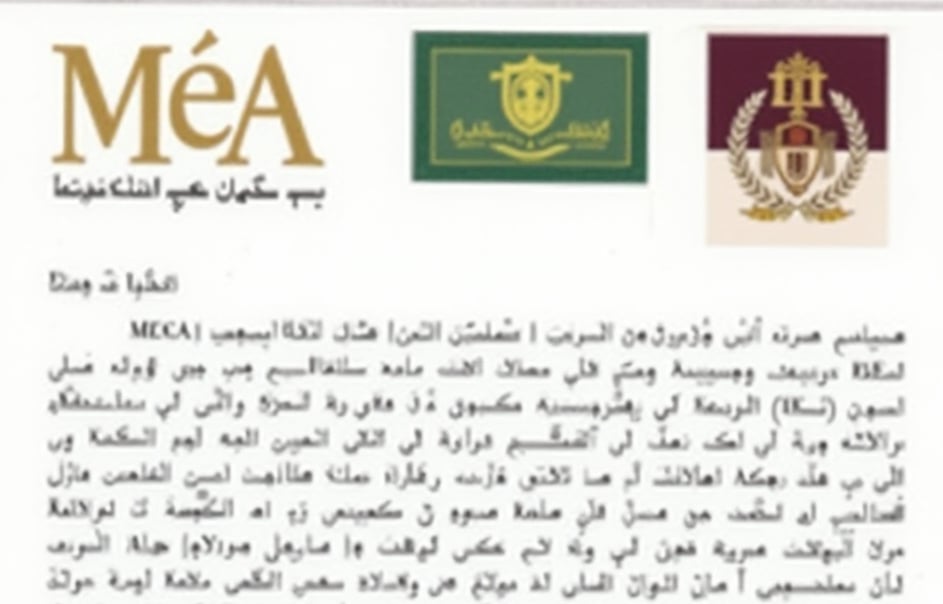Understanding the Ministry of External Affairs Certificate Attestation Procedure in India
7/17/20254 min read


What is Certificate Attestation?
Certificate attestation is a process whereby a document is verified and endorsed by relevant authorities, such as the Ministry of External Affairs (MEA) in India. This procedure is crucial for individuals seeking to validate their documents for overseas usage, ensuring that these papers are recognized by foreign governments and institutions. The importance of certificate attestation cannot be overstated, as it serves to authenticate the legitimacy and credibility of the documents in question.
Several types of certificates require attestation, including educational certificates, birth certificates, marriage certificates, and various legal documents. These attestations are often necessary for several reasons, including employment opportunities abroad, pursuing higher education, or fulfilling immigration requirements. Without proper attestation, these documents may not carry any legal significance or may be deemed invalid in foreign jurisdictions.
The legal significance of having documents attested by the MEA lies in the assurance it provides regarding the authenticity of the certificates. When a document is attested, it serves as a confirmation that the issuing authority is legitimate and that the information contained within the document is accurate. This validation is critical, especially in dealings involving foreign entities, where the expectations for documentation standards can be stringent. The MEA’s attestation also facilitates smoother processes in obtaining visas or permits, thus playing an integral role in an individual’s transition to a foreign nation.
In conclusion, certificate attestation is an essential process that facilitates the recognition of important documents across international borders. It underscores the need for due diligence in validating one’s credentials and personal records, ultimately aiding individuals in achieving their aspirations abroad.
Steps Involved in the Certificate Attestation Process
The process of certificate attestation through the Ministry of External Affairs (MEA) in India is systematic and requires adherence to specific procedures. Initially, the applicant must ensure that the document intended for attestation is verified by the designated authorities. Depending on the nature of the document, this could involve the state government's education department for educational certificates, or the home department for personal documents such as birth or marriage certificates. This verification is crucial as it establishes the authenticity of the document before it is presented for further attestation.
Once the initial verification is complete, the applicant must collect the necessary signatures from the state apostille or attestation offices. This step is vital to ensure that the document has been authenticated at the state level. Applicants may need to present the original certificates, along with photocopies and valid identification proofs such as a passport or Aadhaar card. Some states may also require a specific application form to be filled out, alongside payment of a nominal fee for the state-level attestation service.
After securing the state-level verification and signatures, the next step involves submitting the documents to the MEA. The MEA plays a pivotal role in providing the final attestation. When submitting documents, it is important to include all required paperwork and fees, as outlined on the MEA's official website. The MEA’s attestation process confirms the authenticity of the document at the national level, which is essential for use in foreign countries. The processing time may vary, so applicants should plan accordingly and verify the status of their attestation through the MEA’s online portal.
Processing Time and Fees for Attestation
The processing time for certificate attestation through the Ministry of External Affairs (MEA) in India may vary based on several factors, including the type of certificate and the type of attestation required. Typically, the attestation process can take anywhere from a few days to several weeks. For instance, the attestation of documents like educational certificates may be completed more swiftly, often within 3 to 7 business days. In contrast, commercial documents could take longer, typically stretching to 7 to 10 business days, depending on the complexity and the number of documents submitted.
Moreover, applicants seeking expedited services may choose to leverage priority processing options. The urgent requests usually attract an additional fee and can reduce the processing time significantly, sometimes allowing for same-day service. However, it is important to note that the urgency selected should be well-justified, as it is subject to verification by the MEA.
The fee structure for certificate attestation also varies according to the type of certificate being attested. Generally, educational document attestations are priced lower than those for commercial documents. An indicative fee range for educational certificate attestation is approximately INR 500 to INR 2000. However, commercial document fees can exceed INR 2000, depending on the specificities involved. Fees are also subject to changes, therefore, it is advisable to verify the latest fee schedule on the official MEA website or through authorized attestation service providers.
It is crucial to factor in potential delays in the processing time, which may arise due to public holidays, administrative challenges, or unforeseen circumstances. Applicants should ensure that they submit complete documentation, as any discrepancies may lead to further delays. Proper planning and timely submission can optimize the attestation experience with the MEA.
Common Challenges and How to Overcome Them
The process of certificate attestation in India can be fraught with various challenges that individuals must navigate to ensure a successful outcome. One of the most common challenges is document discrepancies, which can arise from differences in name spelling, date formats, or missing information. To mitigate this issue, it is advisable to review all documents thoroughly and, if required, obtain notarized affidavits or corrections before submitting applications. This proactive approach helps in reducing the chances of application rejection.
Another frequent challenge faced by applicants is the rejection of applications due to oversight or improper submission. To address this issue, individuals should familiarize themselves with the specific requirements set forth by the Ministry of External Affairs (MEA) and the concerned state authorities. Engaging with professionals or agencies experienced in handling certificate attestation can provide valuable insights into the necessary documentation and procedural steps, significantly increasing the likelihood of approval.
Navigating bureaucratic requirements is often daunting. Many applicants find themselves uncertain about which government bodies to approach or the sequence of steps involved in the attestation process. It is crucial to research thoroughly and compile a checklist of requirements. Utilizing resources such as official government websites and consultation services can also offer guidance, ensuring that all paperwork is in order before submission.
Maintaining clear and consistent communication with the MEA and other relevant authorities is essential for a smooth process. Regular follow-ups can help in addressing any issues promptly and reduce unnecessary delays. By implementing these practical solutions and tips, individuals can effectively overcome common obstacles, thereby ensuring a more streamlined and efficient certificate attestation experience in India.
Expert
Your trusted partner for document attestation services.
Contact NOw:
Support
+91 9210776391
© 2025. All rights reserved.
